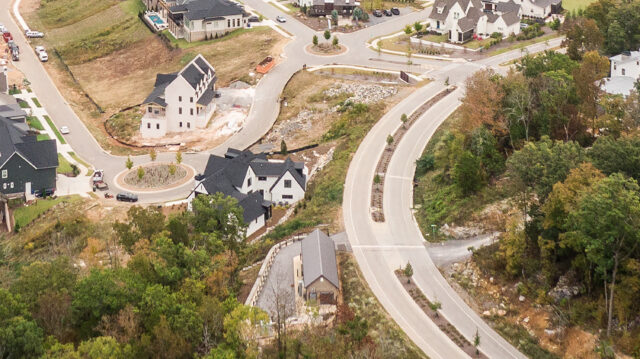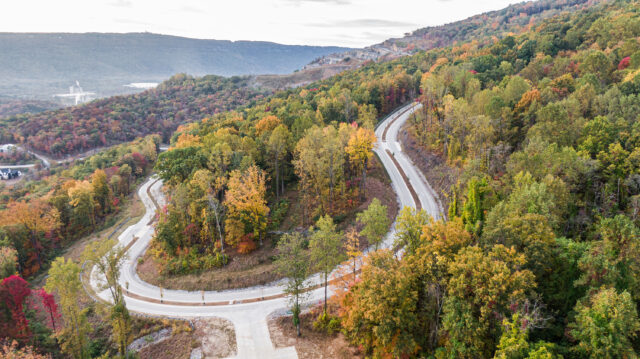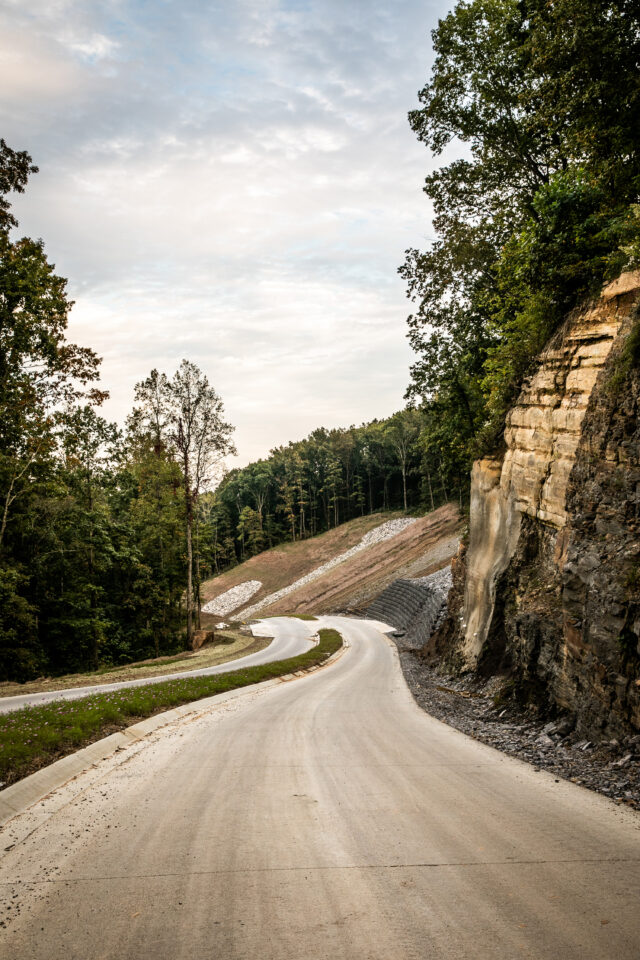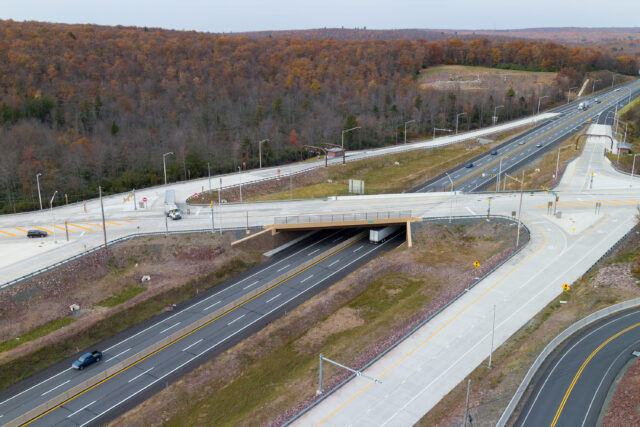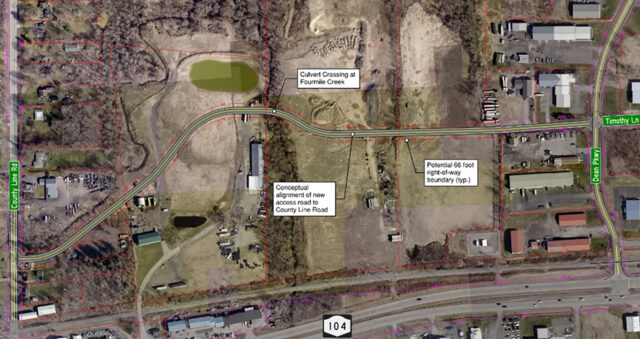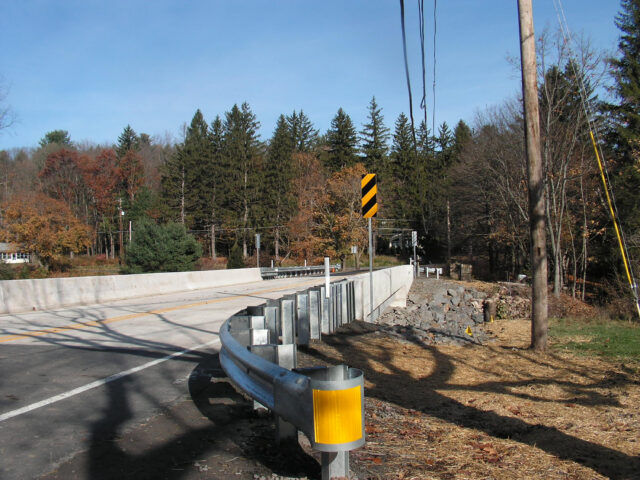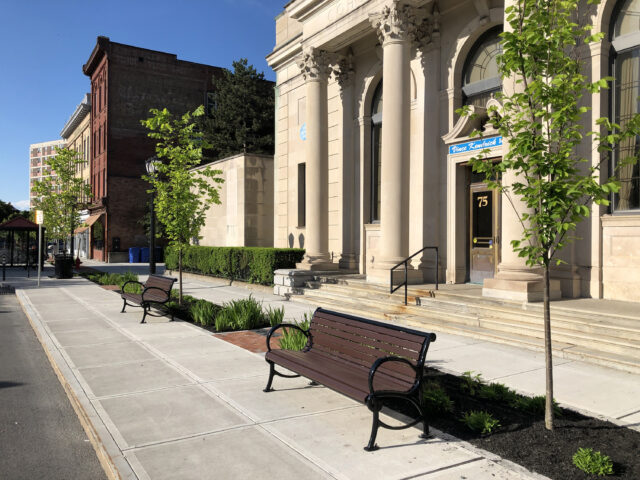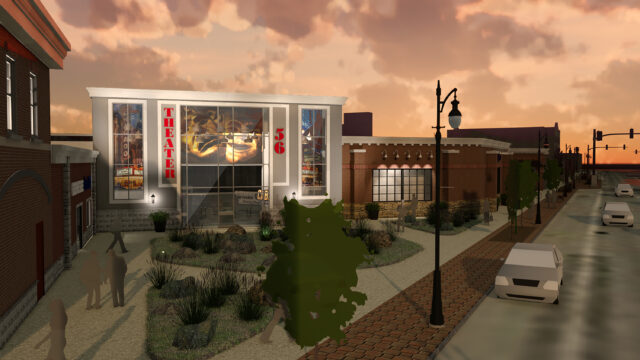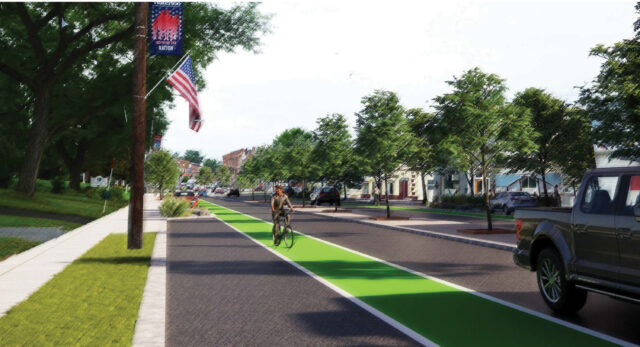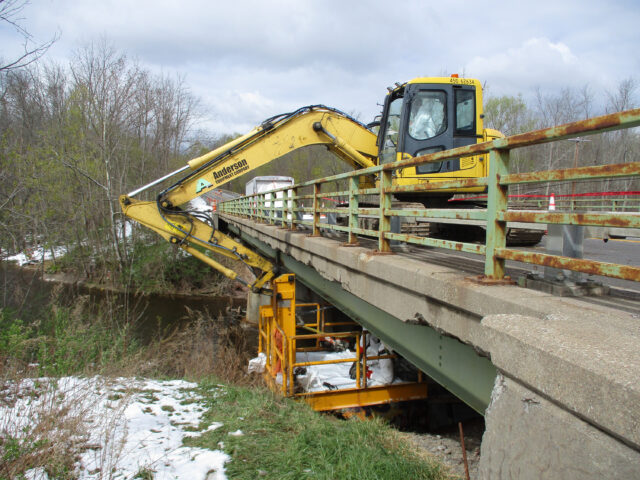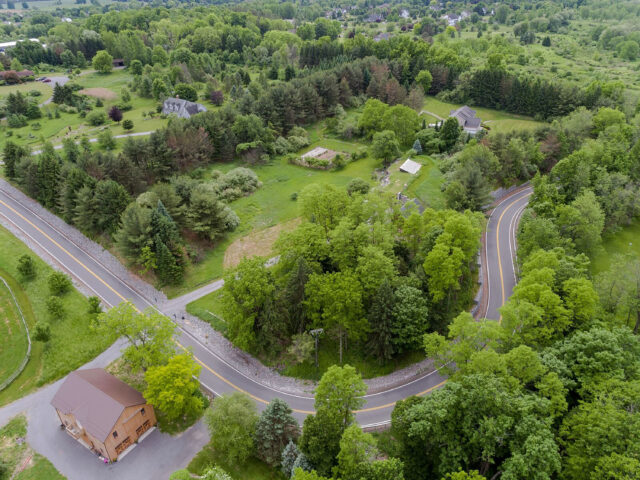Utility Expansion
Public Roadway Allowed for the Extension of Public Utilities
The creation of the public roadway allowed for the extension of public utilities, including water, wastewater, gas, power, and communication. LaBella was responsible for the permitting of the public sewer extension with Hamilton County. This sewer extension is noteworthy due to the elevation and energy change from top to bottom. At one point, harnessing the elevation change as a mechanism for power output was considered. However, after careful consideration, the authorities having jurisdiction opted not to move forward with this approach. The installed sewer extension is comprised of redundant dual-force, low-pressure, welded high-density polyethylene sewer mains running underneath the roadway.
LaBella also worked with Tennessee American Water to design a welded steel watermain at 650 psi to boost pressure from the bottom of the mountain to the water tank at the top.
